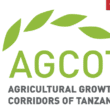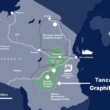DART
 Tanzania DART
Tanzania DART
The Dar Rapid Transit (DART) is a bus-based mass transit system connecting the suburbs of Dar Es Salaam to the central business district., which began operations on May 10th, 2016.
The transit system consists of six phases and the construction of the first phase began in April 2012 by the Austrian construction company Strabag International GmbH.
Construction of the first phase was completed in December 2015 at a total cost of EUR134m, funded by the African Development Bank (AfDB), the World Bank (WB) and the Government of Tanzania (GoT).
Phase I of the BRT system has a total length of 21 km and runs from Kimara to Ubungo ending at Kivukoni/Morocco. The route is designed to carry 300,000 commuters daily along 29 stations.
The entire system is operated by Usafiri Dar es Salaam Rapid Transit (UDA-RT) under the surveillance of the Surface and Marine Transport Regulatory Authority (SUMATRA).
Currently, the route is serviced by 140 Chinese built buses, providing express and local service for 18 hours daily from 05:00am to 11:00pm.
According to the Institute for Transportation and Development Policy (ITDP), the DART system has dramatically reduced commute times for Dar es Salaam residents, who previously faced upwards of 4 hours stuck in traffic each day.
For passengers taking DART, a trip from Kimara to Kivukoni or Gerezani or Kariokoo now takes only 45 minutes.
In addition, most stations have overtaking lanes, allowing a portion of the fleet to provide express services to key destinations.
To use the service, passengers pay fares ranging from TZS 400 to 800 (USD 0.18-0.37).
There are six planned phases that will serve over 90% of the city’s population and currently only Phase I is operational.
Tanzania DART: Construction Phases
- – Phase I from Kimara to Kawawa North to Msimbazi Street ending at Kivukoni: 20.9 km
- – Phase II from Kilwa to Kivukoni plus Kawawa south to Kilwa road: 19.3 km
- – Phase III from Airport to Uhuru Street along Nyerere Road: 23.6 km
- – Phase IV along Bagamoyo Road and Sam Nujoma Road: 16.1 km
- – Phase V along Mandela Road: 22.8 km
- – Phase VI along Old Bagamoyo Road: 27.6 km
Funds for Phase II were secured in October 2015. The second phase is to run for about 19 km from Kilwa to Kawawa south via Kivukoni at the cost of abound USD160m.
AfDB will provide USD141m for the project, while the remaining funds will come from the government.
ITDP notes that the system will carry an estimated 400,000 passengers per day once it is fully operational.
“The project has the potential to be truly transformative, curbing sprawl and improving urban life in Tanzania,” ITDB indicates.








